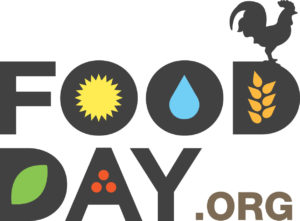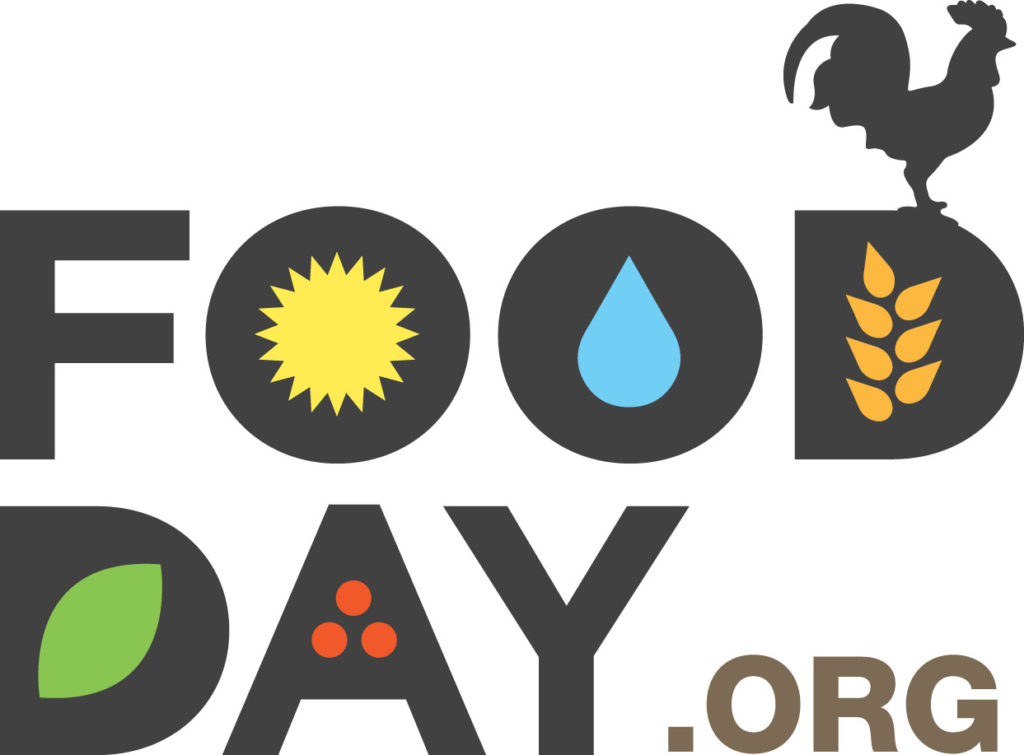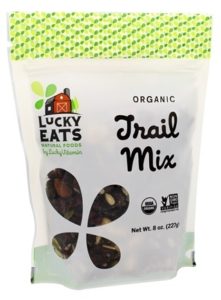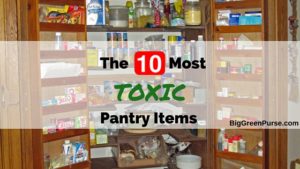Food should be the healthiest, safest thing our society produces and we consume. But it’s not.

1) Help more farmers grow organic food. Right now, U.S. agriculture policy provides price supports and subsidies to farmers who use pesticides and insecticides – and penalizes those who don’t. Shouldn’t it be the other way around?
2) Charge more for food that’s grown using pesticides and herbicides. Organic food can cost as much as 30% more than food that’s been raised using all kinds of chemicals that pollute our air and water and make us sick. Organic food is more expensive because there’s less of it, and it’s more labor intensive to grow because (see 1 above) organic farmers don’t get paid not to use pesticides and herbicides. Given the cost to society of cleaning up the environmental and human health problems created by pesticide use, shouldn’t there be a “HEP” (health/environment penalty) imposed on conventional food that would help bring its price more inline with the price of organics?
3) Require all restaurants to compost food. In fact, not just restaurants, but hospitals, government buildings, school cafeterias – any institutions that throw away massive amounts of food — should be required to compost food waste rather than throw it away, turning it into organic fertilizer for use locally. FYI, you could be composting your own kitchen waste, too!
4) Define “natural.” A lot of food is marketed as natural, even though it’s been highly processed, is overpackaged, and doesn’t bear one iota of resemblance to the food it originally came from. Working with biologists and botanists, let’s define what “natural” really means – and prohibit flagrant misuse of the word by marketers who know we want to eat natural food, even if that’s not what they’re selling.
5) Stop wrapping food in plastic. Plastic wrap, plastic boxes, plastic clam shells, plastic bags, plastic bottles: these days, it’s hard to find food that’s NOT wrapped in plastic. What’s the big deal? Plastic doesn’t biodegrade, and there’s some research indicating that chemicals in the plastic can leach into the food itself. How can you avoid the plastic? Buy fresh food, fill your own safe containers from bulk food bins, and choose food packaged in glass jars or wrapped in paper.
6) Get rid of BPA in the lining of canned foods. Bisphenyl-A has been linked to a variety of health disorders. This new study suggests that pregnant women exposed to BPA could give birth to girls with behavior disorders. It’s time to ban the use of BPA in any food container, including soda cans, baby bottles, and plastic food containers.
7) Make cooking a required class for all high school students. When I was growing up, girls in middle school were required to take “home economics” (the boys got away with “shop”). These days, both of those classes are optional – which means many kids opt out. Yet I’d argue that one of the reasons why fast food is so popular is because so many people don’t actually know how to cook. Why not make cooking class a requirement in senior year of high school, regardless of whether kids are heading off to college or to live on their own? The semester-long curriculum would focus on nutrition, locally grown food, organic agriculture, and composting, along with how to make a decent omelette or a delicious salad.
8) Prepare more of your own food. If you don’t know how, here are a few good cookbooks to get you started.
9) Grow your own. If you have a pot, a patch of sun, and a patio, you can grow cherry tomatoes, cucumbers, lettuce, and herbs. With a 10×10 plot of land and some good compost, you can grow plenty more. These 10 tips will get you going.
10) Sit down at the table when you eat. Preferably, with friends or family. One of the reasons we may not mind eating junky food so much is that we don’t give ourselves enough time to enjoy our meals. If you get up a few minutes earlier, can you actually eat a nice breakfast instead of snarfing down some kind of McMuffin on the run? If you get your kids and spouse or partner involved in the cooking, can you all pull together a meal of what Food Day sponsor the Center for Science in the Public Interest calls “real” food? Yes, time is of the essence. But delicious food is the very essence of life!
Surely you must have other ideas for ways we can make our food system better for us and healthier for the planet. Please share, and Happy Food Day!
RELATED POSTS:
Take the “Buy Local” Challenge
Make Your Own Delicious Tomato Sauce. Here’s How:
Salmonella-Poisoned Eggs Make a Strong Argument for Local, Organic, Family Farms


















5 thoughts on “In honor of Food Day, 10 Radical Ways to Make Food Better”
‘–Don’t throw away food. I’ve read that 1/3 to 1/4 of food in the U.S. ends up in the trash. As cheap as I am, and as much as I hate waste, I still occasionally end up tossing food — it takes some real planning to avoid.
–Eat less (not very fun, but would probably improve all of our health). I read in Omnivore’s Dilemma that we eat at least 300 more calories per day than in 1985.
If folks wasted less food and ate less food, maybe they’d be able to afford/ be willing to pay for the good stuff (eco-friendlier, healthier, and higher quality food products).
Good points, Betsy. I’ve found just putting my leftovers in the front of the fridge rather than the back has reduced my food waste significantly. I also only go to the grocery store once a week. By the end of the week, we’ve pretty much consumed what we bought previously. Thanks for commenting!
I love this!
Thanks for this awesome post. If you want to more on how to green your fridge, check out this video. http://youtu.be/Igyl2cHaQ4I
These are great essentials for healthy and holistic natural foods for selection. The world needs to pay attention to this one for a great change.
Comments are closed.